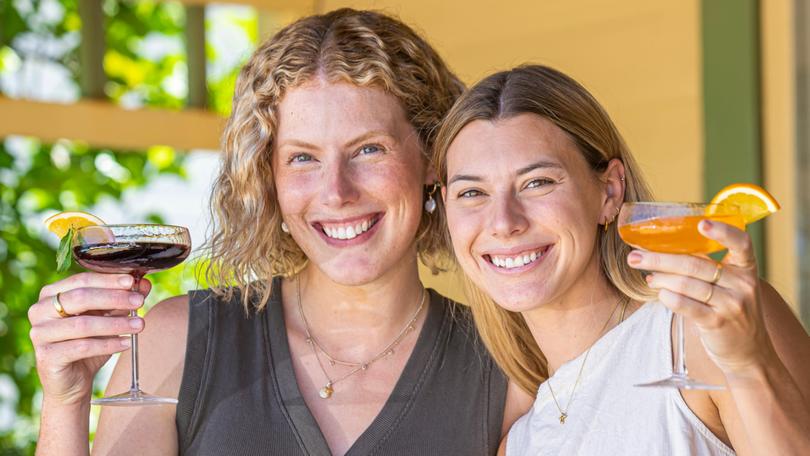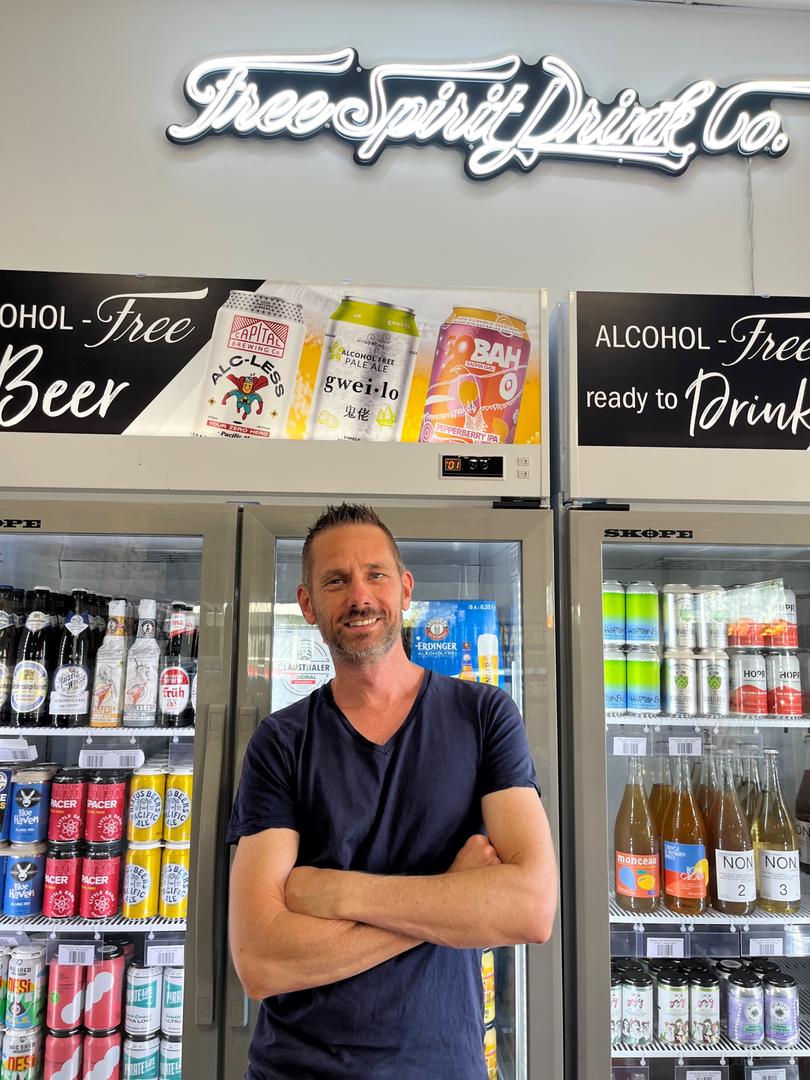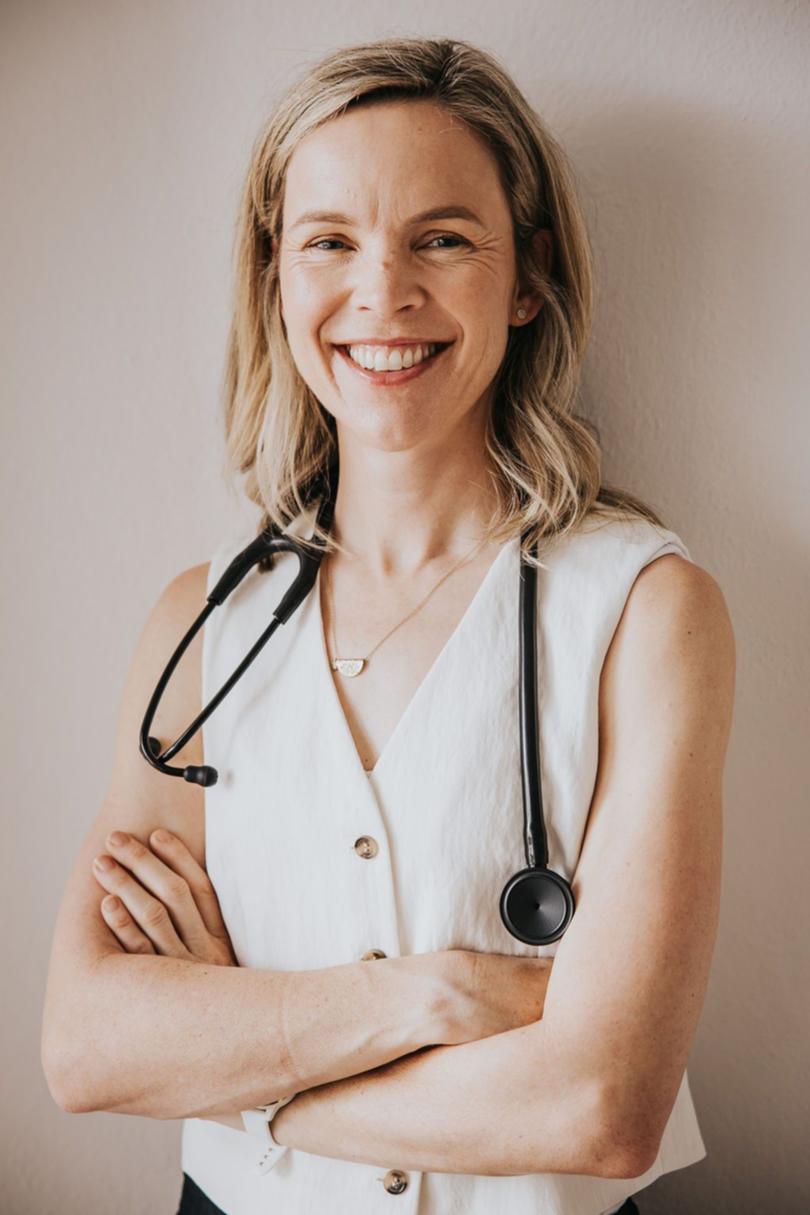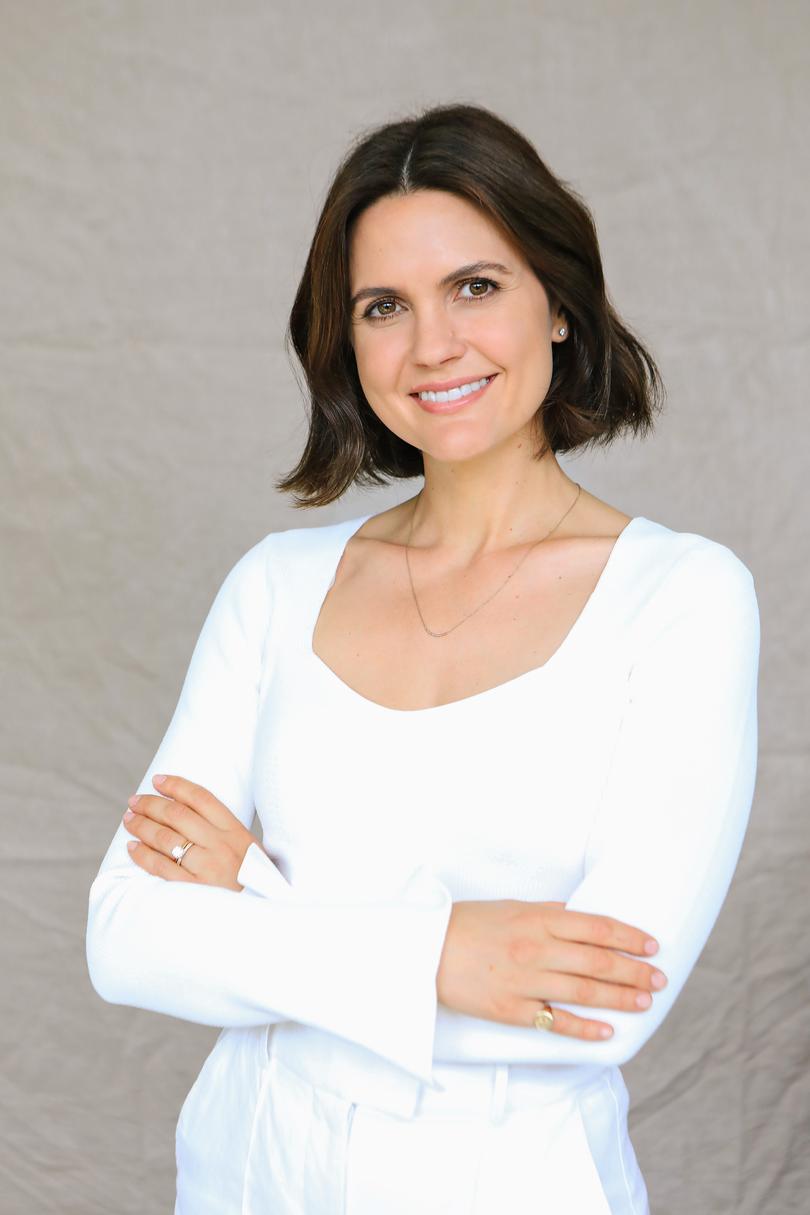Six health trends set to shape 2025: Sober(er) living, AI, mainstream menopause and personalised medicine
These are the trends and innovations set to define the year ahead.

Women’s health is finally getting the attention it deserves, artificial intelligence is set to shake-up healthcare in more ways that one and eating to stay healthier and stronger for longer will be firmly on everyone’s radar.
These are the trends and innovations set to define the year ahead.
Sober(er) living
Sign up to The Nightly's newsletters.
Get the first look at the digital newspaper, curated daily stories and breaking headlines delivered to your inbox.
By continuing you agree to our Terms and Privacy Policy.Whether you’re sick of the hang-xiety or stepping back to honestly appraise your relationship with booze, a growing number of us are exploring alcohol-free lifestyles.
Data released by The Australian Criminal Intelligence Commission in November 2024 revealed Australians were consuming less alcohol than in the previous year.

It reflected a two-year trend, with wastewater monitoring showing record low levels of drinking in capital cities (the fly in the ointment being that illicit stimulant use remains high, and ketamine use is exploding, but soberer living is a good start).
Data from the Australian Institute of Health and Welfare also revealed the proportion of the population who identified as “ex-drinkers” rose from 7.6 per cent to 8.9 per cent in three years to a record 1.9 million people in 2019, driven largely by young people.
Adrian Allier, owner and founder of Free Spirit Drink Co, a non-alcoholic bottle shop, said WA’s drinking culture was changing.
He said more people were breaking up with booze, or were drinking less, and as a reflection of this trend he decided to re-locate his alcohol-free bottle shop from suburban Applecross in September 2024 to the bustling shopping mall Westfield Booragoon.
“We knew we were on track for a busier Christmas than the previous year and wanted to make the most of it so not only did we re-locate, we are planning to open a second store in WA now we can see the demand will be there as more people look to live a healthier lifestyle.”
AI will re-shape health care
Are AI and healthcare made for each other?
If these tools continue to meet rigorous standards for safety and efficacy, while also proving cost-effective, they have the potential to radically change health care.
For example, in the field of radiology alone, AI is starting to be used to spot cancers earlier, slash wait times and speed up treatments.
Radiologists have traditionally relied on imaging software to diagnose diseases using MRIs and CT scans but over the past year AI capabilities have dramatically improved, enabling them to detect cancers much earlier than ever before.
Studies also suggest AI is slashing radiologists’ workloads by up to 68 per cent, while allowing more patients’ scans to be processed and results delivered in record time.
“These AIs are also better at determining if a tumour is benign, limiting unnecessary and expensive secondary scans as well as reducing patient anxiety,” Curtin University’s Alex Jenkins, director of the WA Data Science Innovation Hub, said.
“We expect to see the accelerated deployment of these AI technologies in 2025 and beyond.
“People will see a leap in capabilities such as the ability to spot cancers before they are visible to the human eye, which could be lifesaving.”
Menopause will be mainstream
Ladies, rejoice.
After years of suspicion, stigma and uncertainty surrounding menopause it’s finally being taken seriously.
And about time given more than 1 billion women around the world will have experienced perimenopause by 2025.
In fact, a recent 2024 Senate inquiry highlighted how menopause wasn’t well understood by the community, in the workplace and by some doctors.
It heard how women had been dismissed, offered ineffective treatments or wrongly diagnosed by healthcare professionals.
Celebrities like Naomi Watts and Halle Berry had already helped strip away some of the stigma by opening up conversations around menopause and the health issues that come with it.
Now more Australian women are sharing their own stories. Whether that is about being held back from their full potential in this phase of life because they could not finding adequate support, to how the transition to no more periods impacted their jobs, finances, relationships, retirement and health.
The inquiry also heard how it was not uncommon for women to be shamed for wanting to take hormone replacement therapy, even though the medicine would have offered many benefits.

Dr Niamh Leonard, a GP and menopause doctor in Bicton, hopes the next generation of women won’t needlessly suffer in silence now that society appears to have reached a turning point.
She said two major studies from 2002 and 2003 lead to HRT being demonised by linking it with an elevated risk of breast cancer, heart attack and stroke.
Those studies were misleading, she explained, with more recent studies telling us that the earlier women start taking HRT, the better the long-term outcomes. It has since been shown to protect against some of the illnesses of old age, including osteoporosis and heart disease.
“HRT was demonised in the early 2000s due to the misinterpretation of data from the Women’s Health Initiative study but the hormone therapy options available now and going into 2025 are vastly different from those of 20 years ago,” Dr Leonard explained.
“Body-identical estrogen delivered through the skin is now recognised as a safe and effective way to supplement estrogen during the menopause transition and beyond.
“In fact, transdermal estrogen and body-identical progesterone can not only improve a woman’s menopause symptoms but also have significant benefits for her bone health and heart health.”
No longer a taboo topic, Dr Leonard predicts more women will re-claim this rite of passage as a powerful life stage, and take back control of their bodies and confidence.
“As the benefits of hormone therapy become more apparent, women are realising that menopause doesn’t need to be endured silently,” she added.
Supercharged medical research
One of AI’s most exciting promises lies in its ability to speed up medical research, according to Alex Jenkins, director of the WA Data Science Innovation Hub.
With new AI programs like AlphaFold2, created by Google DeepMind, what scientists achieved after toiling in a lab for three years can now be done in under a day.
Its creators won the 2024 Nobel Prize in Chemistry. These three very clever people developed an AI model which solved a 50-year-old problem: predicting proteins’ complex structures.
With such advancements, AI holds the potential to unlock therapies for a vast array of diseases.
Mr Jenkins said AlphaFold2 helped solve the mystery of how proteins fold into their unique shapes.
“This breakthrough matters because the structure of proteins dictates nearly every biological process in the body, from transporting oxygen in the blood to regulating hunger,” said Mr Jenkins.
“Historically, understanding these intricate molecules required years of meticulous effort.

“Now machine learning is accelerating this process, compressing years of research into just weeks or even days.”
AlphaFold2 will have many scientific applications, including helping researchers better understand antibiotic resistance as well as creating images of enzymes that can decompose plastic.
Mr Jenkins said AI innovations like these will result in drug trials being more efficient and precise.
Trialing drugs is typically a lengthy process requiring a lot of trial and error but AI’s will make “solving the jigsaw puzzle that is human health easier,” he said.
And drugs should start hitting the market faster as a result.
“People can expect to see a dramatic increase in new drugs that are highly targeted to specific diseases like cancers, specifically breast and prostate, and genetic diseases like Parkinson’s as well as neurodegenerative ones such as Alzheimer’s,” explained Mr Jenkins.
“With such advancements, AI holds the potential to unlock therapies for a vast array of diseases.”
Eating for a long and healthy life
One of the most important things we can do to extend our lifespans - and healthspans - is to focus on our food.
What we put on our plate can dramatically slash the risk of heart disease, stroke, cancer, osteoporosis and a host of other health problems that can impact your quality of life.
Better still, it can extend the section of your life spent in good health — the pain and disease-free part — which is known as your “healthspan.”
Dr Amelia Harray, a senior dietitian and researcher at the University of Western Australia, predicts a rise in eating for longevity in 2025.

Not sure what that involves?
According to Dr Harray, you just need to boost the amount of plant and animal protein foods you consume.
Think nuts, beans, legumes, seeds, tofu and wholegrains from plants and lean meat, poultry, fish, eggs and dairy from animals.
As we age, we need those extra calories from protein to help maintain muscle mass.
Also make sure you’re eating enough calcium-rich foods such as cheese, milk and yoghurt to keep your bones strong because from age 25 they start to weaken.
“There’s a rise in plant-based milk consumption in Australia so if this is you, my tip is to always look for unsweetened options that are fortified with at least 120mg calcium per 100ml of milk or yoghurt.,” Dr Harray added.
And it doesn’t take a university degree to know it’s going to help lengthen your life if you load up on a variety of fruits and vegetables every day as well.
“They’re packed with antioxidants, such as flavonoids or carotenes, that support healthy aging in cells,” Dr Harray explained.
Personalised medicine
“Expect to see the rise of personalised healthcare through digital AI driven health platforms,” Curtin University’s Alex Jenkins, director of the WA Data Science Innovation Hub, predicted.
“These platforms will provide services including extensive medical testing, genetic testing and tailored health recommendations.
“The idea is to shift health care from a reactive system to a preventative system.”
He said instead of going to the doctor when something is already wrong, and then undergoing a battery of tests associated with the symptoms, new digital platforms are emerging to provide people with extensive preventative health monitoring to ensure diseases are caught early, or can be prevented entirely.
Case in point: Superpower Health, which pitches itself online as, “the world’s most advanced digital clinic to help you live longer, prevent disease, and feel your best.”
It offers lab tests, consults with clinicians, reports on your health and biological age and specialty testing for your gut, hormones and toxins among other services. The subscription fee is about US$500 a year.
“I expect to see this sort of thing rolled out in Australia,” said Mr Jenkins.
“In the US, they are already struggling to accommodate the consumers who want this so if this can be delivered at an appropriate price point and it works, this has to be the future of healthcare.
“This is already how the extremely wealthy among us in the western world — the billionaires — do health.
“They have private doctors who do proactive checkups and extensive health screening and imaging but I think this will soon be available to the rest of the population and at lower and lower price points.”
Originally published on The West Australian
